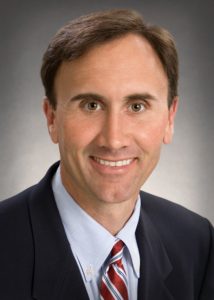 WASHINGTON, DC– While the production of American natural gas increases and demand for our energy spikes around the world, the process at the Federal Energy Regulatory Commission (FERC) to review the applications for construction of energy export terminals has been stymied by a shortage of highly specialized engineers. Salary is a critical component in deciding where to work, and it has become clear that at this time engineers can work in the private sector for significantly higher pay than FERC can offer. The disparity has made it harder to attract the expertise and talent needed to review needed infrastructure projects. That’s why Reps. Pete Olson and Mike Doyle have introduced H.R. 1426, the Timely Review of Infrastructure Act, to give FERC the flexibility to consult with the Office of Personnel Management (OPM) and determine appropriate salaries to hire the staff they clearly need.
WASHINGTON, DC– While the production of American natural gas increases and demand for our energy spikes around the world, the process at the Federal Energy Regulatory Commission (FERC) to review the applications for construction of energy export terminals has been stymied by a shortage of highly specialized engineers. Salary is a critical component in deciding where to work, and it has become clear that at this time engineers can work in the private sector for significantly higher pay than FERC can offer. The disparity has made it harder to attract the expertise and talent needed to review needed infrastructure projects. That’s why Reps. Pete Olson and Mike Doyle have introduced H.R. 1426, the Timely Review of Infrastructure Act, to give FERC the flexibility to consult with the Office of Personnel Management (OPM) and determine appropriate salaries to hire the staff they clearly need.
“America’s dominance as an energy supplier continues to thrive, reducing allies reliance on hostile regimes around the world,” Rep. Pete Olson said. “However, we struggle to meet the growing international demand for American energy thanks to barriers in the approval process by the federal government. The Federal Energy Regulatory Commission (FERC) has a serious backlog of projects awaiting approval, grinding the process almost to a halt. Our bill will allow FERC to remain competitive and attract high quality talent for specialized energy jobs to address this backlog and get energy to those who need it. Our Texas and American-made energy should be processed and shipped to markets that demand it. I thank my colleague Rep. Mike Doyle for working with me on this important issue and look forward to this bill moving quickly through committee and to the House floor for a vote.”
“The United States is a leader in energy production, and ensuring that domestic projects are approved with strong safety and environmental protections is key,” Rep. Mike Doyle said. “Unfortunately, the engineers FERC needs to review applications for new energy projects are in such high demand that normal federal government pay levels can’t begin to compete with the salaries offered in the private sector. If we want FERC to ensure that these facilities and projects include the necessary safeguards to protect nearby communities and the environment, then we have to make the pay for the engineers who review the applications more competitive. That’s why I’ve been working with Pete Olson to draft this legislation, and I’m very pleased to announce its introduction today.”
“The Commission is responsible for ensuring the timely and efficient review of key infrastructure applications, such as those for liquefied natural gas export terminals,” FERC Chairman Neil Chatterjee said. “I’ve been pleased by the recent significant headway FERC has made in this regard, but more can be done to improve our process. By enhancing our ability to recruit and compensate the skilled staff needed to review these applications, this legislation would allow FERC to build upon the progress we’ve made already. Importantly, it would also help ensure that future Commissions have the resources necessary to effectively evaluate projects going forward. I commend Representatives Pete Olson and Mike Doyle and Senator Cassidy for their leadership on this issue and their bipartisan efforts to support FERC’s mission.”
U.S. Senators Bill Cassidy (R-LA), Lisa Murkowski (R-AK) and Cory Gardner (R-CO) are cosponsoring similar legislation in the Senate.
“FERC’s backlog of applications for these infrastructure projects is standing in the way of good-paying jobs for Louisiana families,” Sen. Bill Cassidy said. “FERC needs the expertise and manpower to speed up the review process and end long wait times for new natural gas terminals that benefit Louisiana workers and their families.”
Under H.R. 1426, the Commission would have to consult with OPM to determine appropriate salaries. They would only be able to offer higher salaries for positions/roles where they can confirm a critical need, and would have to review that decision every five years. They would also have to report on hiring and staffing as the process moves forward. Further, this bill is technology neutral and will help FERC adapt to changing needs in the future.

